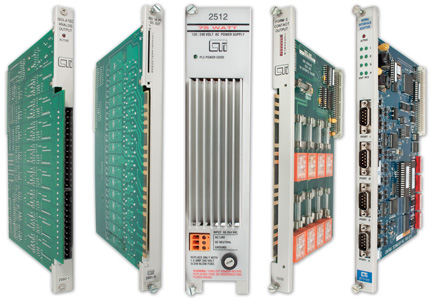Unlock the Secrets: Discover the Perfect Motor Speed Controller for Your Unique Needs!
Motor speed controllers play a crucial role in a wide range of applications, from industrial machinery to consumer electronics. These devices allow users to optimize performance and efficiency by regulating the speed of electric motors, ensuring that they operate at the desired pace without wasting energy. Whether you're a hobbyist tinkering with a DIY project or an engineer designing a complex system, understanding the types and considerations of motor speed controllers is essential. This article will explore the various options available and provide guidance on how to choose the right motor speed controller tailored to your specific needs.

Understanding Motor Speed Controllers
A motor speed controller is an electronic device that manages the speed of an electric motor by adjusting the power supplied to it. The basic functionality involves modulating the voltage and current to control motor speed effectively. There are several types of motor speed controllers, including Pulse Width Modulation (PWM), analog, and digital controllers. PWM controllers are particularly popular for their efficiency, allowing precise control of motor speed by varying the width of the pulses sent to the motor. Analog controllers, on the other hand, adjust the voltage directly, making them suitable for simpler applications. Digital controllers provide advanced features, such as programmable settings and remote control capabilities, making them ideal for complex systems. These controllers find applications in various industries, including automotive, robotics, and HVAC systems, where precise motor control is paramount.
Factors to Consider When Choosing a Motor Speed Controller
When selecting a motor speed controller, several key factors must be considered to ensure compatibility and optimal performance. First, identify the type of motor you are using—be it DC, AC, or stepper—as each type may require a specific controller for effective operation. Next, assess the power requirements of your motor, including voltage and current ratings, as these will dictate the specifications of the controller. Additionally, consider the control method that best suits your application. For instance, if you require precise speed control, a PWM controller might be the best choice. Don't forget to factor in the environmental conditions where the controller will be used; harsh environments may necessitate ruggedized controllers that can withstand temperature extremes and moisture. Understanding these factors will significantly influence your selection process.
Applications of Motor Speed Controllers
Motor speed controllers are ubiquitous across various sectors, enhancing performance and efficiency in numerous applications. In robotics, for instance, precise motor control is vital for achieving accurate movements and operations. A friend who builds custom drones shared how selecting the right motor speed controller dramatically improved the responsiveness of his drone during flight. In the automotive industry, these controllers are utilized in electric vehicles to manage motor performance, contributing to energy efficiency and range. HVAC systems also rely on motor speed controllers to regulate fan speeds for optimal airflow and energy consumption. In manufacturing, controllers facilitate precise machinery operations, ensuring products are produced consistently and efficiently. The right motor speed controller can make a significant difference in performance across these diverse fields.
Steps to Purchase the Right Motor Speed Controller
Purchasing a motor speed controller may seem daunting, but following a structured approach can simplify the process. Start by assessing your specific needs—what type of motor are you using, and what are the required speed ranges? Next, conduct thorough research to explore available options that meet your specifications. Once you have a shortlist, compare the technical specifications of each controller, including power ratings, control methods, and additional features. If you're uncertain about your choices, consulting with experts or manufacturers can provide valuable insights. Finally, consider user reviews and experiences to gain a broader understanding of how well a controller performs in real-world applications. Taking the time to follow these steps will ensure that you make an informed decision that meets your needs.
Common Mistakes to Avoid
When it comes to selecting motor speed controllers, there are common pitfalls that can lead to suboptimal choices. One major mistake is overlooking compatibility with your motor type; using an incompatible controller can result in inefficient operation or damage. Additionally, many users fail to consider future needs, such as potential upgrades or expansions, which can lead to needing a new controller sooner than expected. Ignoring quality is another frequent error; opting for the cheapest option without assessing reliability can result in premature failure. To avoid these mistakes, take the time to evaluate your current and future requirements and prioritize quality over short-term savings. A well-chosen motor speed controller can provide years of reliable service.
Summary of Key Considerations
In summary, selecting the right motor speed controller is a critical step for anyone looking to optimize performance in their applications. By understanding the various types of controllers, considering key factors like motor type and environmental conditions, and being aware of common pitfalls, you can make an informed choice that meets your specific needs. Remember, the right motor speed controller not only enhances efficiency but also contributes to the longevity of your equipment. Take the time to research and evaluate your options, and you’ll be well on your way to achieving optimal performance.






